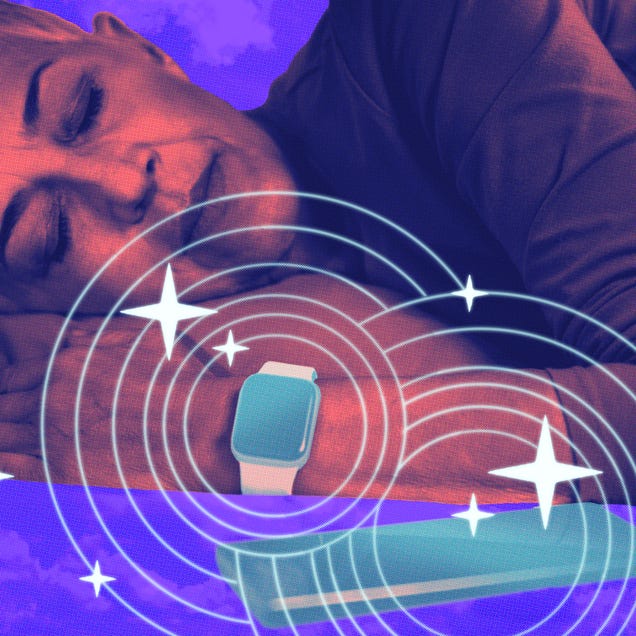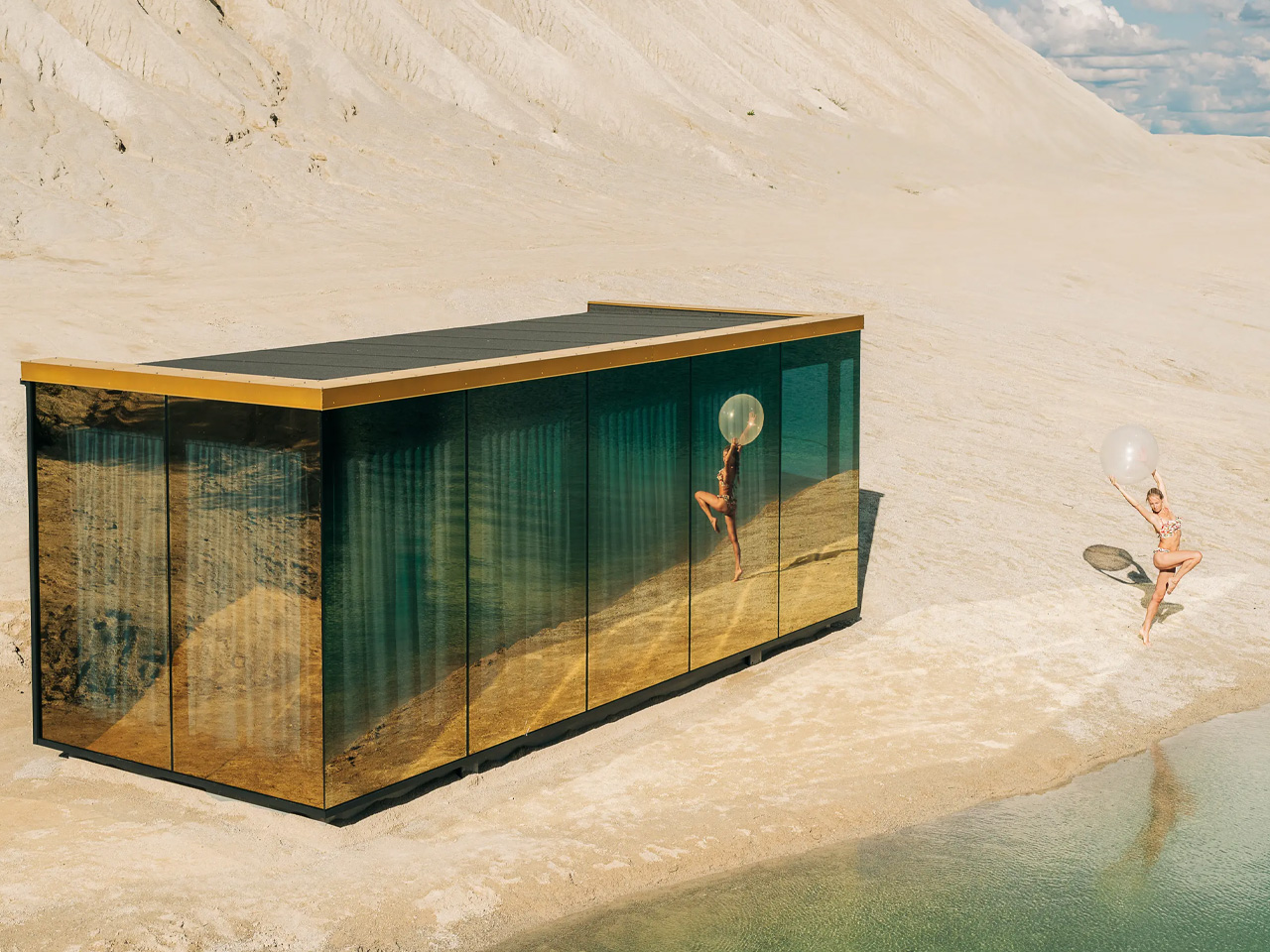After a long day of work, school, travel, or whatever else, the greatest consolation is the prospect of getting cozy in bed, gently shutting our eyes, and drifting off into a deep, restful slumber. But that’s rarely how it goes. Nights of tossing and turning, constantly checking the clock, or worse, the smartphone propped up on your nightstand, and a mind that won’t stop racing.
.. It’s an all too common tale for most of us, creating a seemingly endless cycle of tiredness, anxiety, and stress.

All of this began, as with many of our modern problems, with the Industrial Revolution. Well, really, it started in 1879 with Thomas Edison and his one crucial invention: the lightbulb. Once people were able to work and live out their lives at night, sleep was forever changed.
This has created a huge market for sleep, from high-tech wearable gadgets to luxurious mattresses, sleep trackers, and melatonin — all of which promise to get us to 8 hours of restorative, quality sleep. But it’s hard to tell what’s real, and what’s just a rose-colored dream. Grab a mug of your steaming hot Sleepytime tea and a soft blanket as we explore the realm of sleep — and the lack of it.
How many hours of sleep experts generally recommend for humans. Some experts, however, say this range is arbitrary, and that what matters most is feeling rested when you wake up in the morning. The estimated value of the global “sleep economy,” including devices, mattresses, and supplements, in 2024.
A typical starting dose of slow-release tablets of melatonin, the hormone that helps regulate the body’s sleep cycle. The proportion of U.S.
adults who have symptoms of insomnia. Randy Gardner’s record for the longest someone has gone without sleep. That’s 11 days and 25 minutes with zero shuteye — and the effects were as rough as you would imagine.
The price tag on the Hästens Grand Vividus mattress, a handcrafted Swedish bed that happens to be . Sleep is not a want, but a need for human survival. Yet, it has become an increasingly elusive thing for many.
Why does it feel like we never get enough sleep? For starters, there are over , from insomnia to sleep-related breathing problems to circadian rhythm conditions. Between suffer from some type of sleep disorder, and one-third of adults don’t get uninterrupted sleep. Our high-stress lifestyles are a major contributor.
A quarter of U.S. adults , with the American Psychological Association pointing to the lingering trauma from the COVID-19 pandemic as a major driver.
That stress is killing sleep. High levels of stress can — and stay asleep, according to Dr. Annise Wilson, assistant professor of neurology and of pulmonary, critical care, and sleep medicine at the Baylor College of Medicine.
And a lack of sleep can, in turn, make us more stressed. “Sleep loss triggers our body’s stress response system, leading to an elevation in stress hormones, namely cortisol, which further disrupts sleep,” Wilson said. Caffeine can also make it harder to fall asleep and stay asleep.
It takes up to 10 hours for caffeine to leave your system, and even then, it can throw a sleep cycle out of whack. But alcohol is a lesser-known culprit behind troubled sleep. Alcohol can wake you up after just a few hours of sleep, and prevent you from falling back to sleep.
It can also reduce rapid eye movement (REM) sleep, which is we experience each night. Finally, our smartphones and other screens are one of the biggest culprits behind sleeplessness. The blue light emitted by screen is widely considered a melatonin suppressant, and it’s especially harmful when it’s just inches from your face, according to Dr.
Michael Breus, AKA The Sleep Doctor. It’s also a more active, engaging activity than passively watching TV. 🎧 There’s a lot of money to be made in the business of sleep.
Take sunrise alarm clocks, fancy mattresses, REM-tracking wearables, and monthly deliveries of melatonin. But should we really be investing this much in hopes of catching a few more Zs? In the final episode of season 8 of the Quartz Obsession podcast — — host Rocio Fabbro consults Dr. Michael Breus, a double board-certified clinical psychologist and clinical sleep specialist, on the questions keeping us up at night.
| | 👓 A. 100 milligrams B. 200 mg C.
400 mg D. 600 mg Chloral hydrate, first synthesized by German scientist Justus Liebig more than three decades earlier, begins to be used for sedative purposes. Methaqualone (later known as Quaalude) is first synthesized by Indra Kishore Kacker and Syed Husain Zaheer in India, found to treat insomnia and anxiety.
By the 1970s, however, the drug was being misused recreationally, and was banned in the U.S. in the ‘80s.
American physician Aaron B. Lerner and his colleagues at Yale University School of Medicine discover melatonin. The use of melatonin supplements to help with sleep didn’t take off .
The FDA approves the drug zolpidem, sold under the brand name Ambien, for the short-term treatment of sleeping problems. (Curious how drugs are named? .) Daridorexant is approved by the FDA to be sold under the brand name Quviviq, to help treat insomnia in adults.
Clinical studies found that taking Quviviq every night didn’t lead to withdrawal symptoms after stopping. 💬 In last week’s poll on , of you said you’d ride in an adult stroller if it was self-driving! Elon Musk, get on that. The rest of you are (reasonably) against adult strollers or at least kind of intrigued by them (also reasonable).
🐤 🤔 💡 Today’s email was written by (wishes she got more sleep every night) and edited and produced by (appreciates a good nap). . 📬 Sign up for Quartz Weekly Obsession Want to escape the news cycle? Try our Weekly Obsession.
.


















